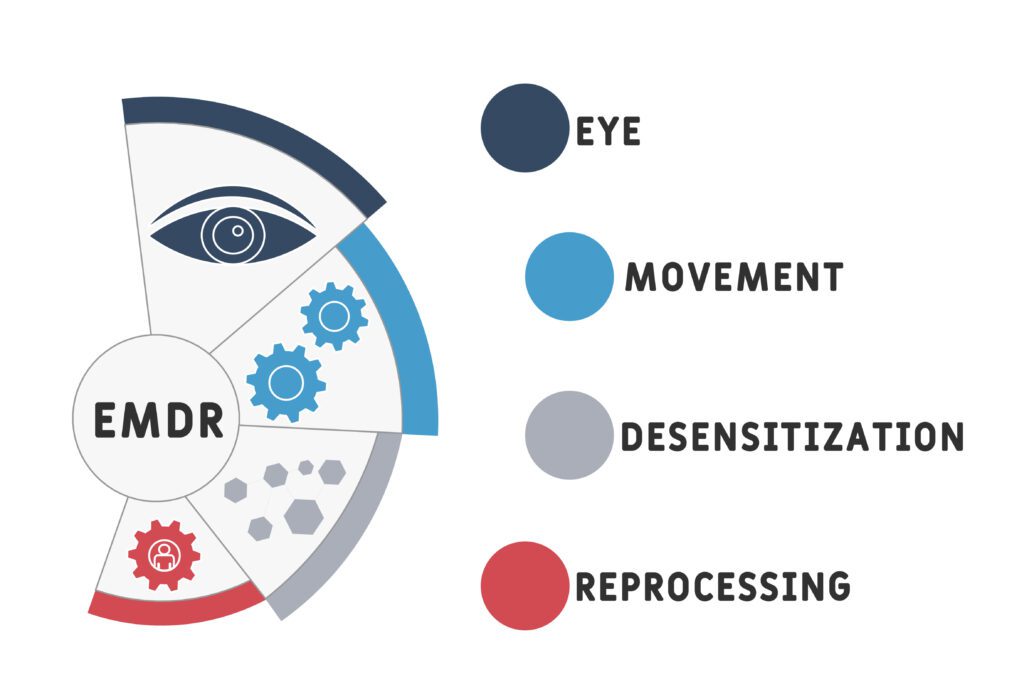EMDR Trauma Therapy Delaware
EMDR therapy has been carefully researched and has been found to be effective in helping clients suffering from adverse life events, anxiety, depression, bipolar disorder and post-traumatic stress disorder. EMDR addresses how the past impacts your present mental health and your future well being. EMDR Therapy is a profoundly effective tool to combat traumatic events and mood disorders and to help you find healing.
As a psychotherapist and EMDR Certified Therapist providing EMDR therapy in Delaware, I take an individualized and holistic approach for each of my clients’ needs and goals.
What is EMDR Therapy?
EMDR (Eye Movement Desensitization and Reprocessing) is a psychotherapy approach that allows people to heal from the symptoms and emotional distress resulting from disturbing life experiences. In many cases, EMDR therapy shows that the mind can heal from psychological trauma just as the body recovers from physical trauma.
Sometimes traumatic events are so overwhelming that our brains do not fully process them. The result is that the trauma continues to plague us, even after time has passed. The shock that your system experienced then continues to impact your mental health and overall well-being – even weeks, months, or even years after the event took place.
EMDR is a groundbreaking, research-based technique that helps your brain to finally process those difficult experiences. EMDR uses bilateral eye movements to help you access and re-process trauma. This is a proven technique that helps your brain to get over being “stuck” in a painful, traumatic loop, and instead provides the opportunity for you to process and start to heal from your past experience.
One of the benefits of EMDR therapy is that it does not require you to talk at great length about your past traumatic events. Many clients appreciate and benefit from a therapeutic approach that does not require them to verbally re-live their most difficult moments.
For many people, EMDR can provide quicker results than traditional talk therapy.
EMDR and Cognitive Behavioral Therapy: What’s the Difference?
There are many different avenues and approaches when it comes to behavioral health and mental health treatments. They all offer different advantages and, depending on your needs, some will be a better fit than others.
Trauma-Focused Cognitive Behavioral Therapy (CBT) is a psychotherapy approach that focuses on breaking unhealthy patterns of thought and behavior and empowering the individual to make different choices that impact their day-to-day well-being. Whether working with a psychologist, licensed clinical social worker, or other mental health professional, CBT involves using problem-solving skills to identify and gradually change the way you think and act, to help you begin the healing process.
When it comes to Trauma Focused Cognitive Behavioral Therapy and EMDR, you do not have to choose one or the other. Many clients find that a combination of approaches can best help them to process traumatic events and then to establish new, healthy patterns of thought and behavior.
## EMDR Therapy Delaware: A Closer Look at the Process
EMDR therapy is typically an eight-phase treatment, including:
- History-taking and treatment planning
2. Preparation, which often involves teaching stress management techniques
3. Assessment
4. Desensitization, or the reprocessing phase
5. Installation of positive beliefs
6. Body scan
7. Closure
8. Reevaluation
Throughout these phases, the therapist uses bilateral stimulation (such as eye movements) to help the client reprocess their traumatic experiences.
As a licensed professional counselor and EMDR-certified professional in Delaware, I know that it can be difficult to confront the grief and trauma that is holding you back. Rest assured, EMDR pays attention to the interplay of beliefs, cognitions, feelings, and the body in the process of healing. For many, EMDR is effective in helping people who feel stuck to move forward from their past.
For immediate help, call 988 or go to your nearest emergency room.




